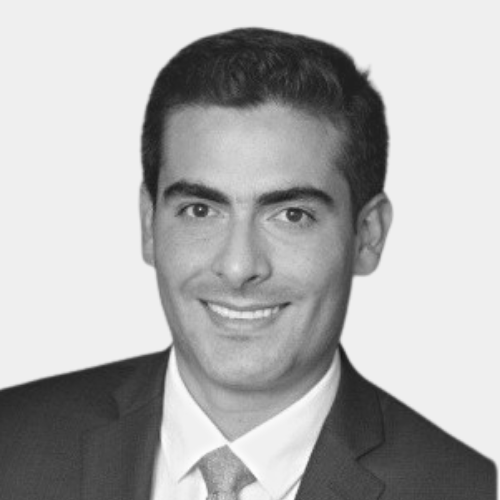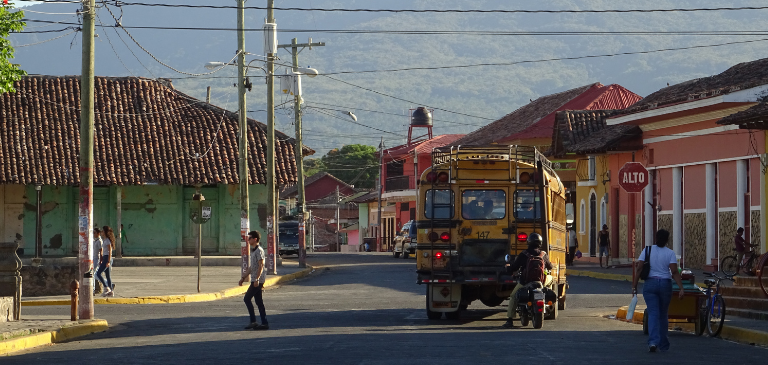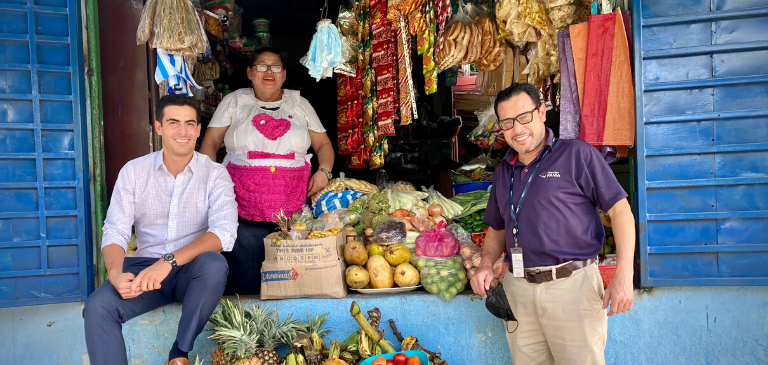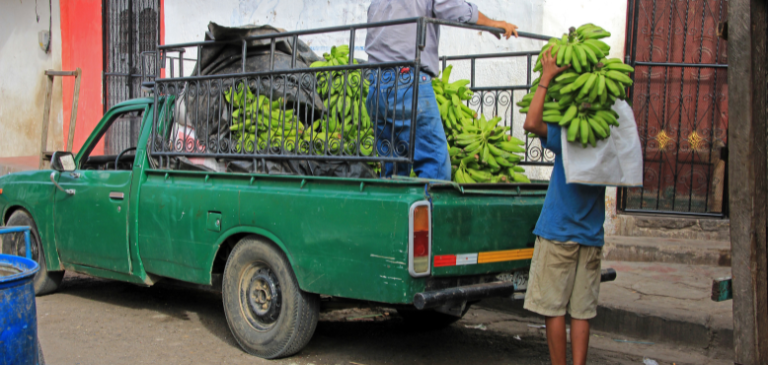
By Armando Simón
Head of Latin America Investments
While several countries in Latin America & the Caribbean have had to endure their fair share of hardship these past few years, none have arguably faced the same magnitude of challenges in such a short period of time as Nicaragua. Nicaragua remains one of the poorest countries in Latin America, with a GDP per capita of $2,380 as of 2021,1 the second lowest in the region. Over the past four years, Nicaragua had to contend with socio-political unrest, which was on the verge of becoming a civil war, followed closely by a pandemic just as these tensions had started to decrease. On top of these challenges, migrants from across Central and South America traversed the country in their attempt to reach the US and other countries in search of a better life. Beyond these social forces, there were natural disasters like tropical storms and earthquakes. (Indeed, two days into my own due diligence trip in Managua, there was a 5.2 magnitude earthquake at close to 3:30 a.m.)
The IMF has projected Nicaragua’s GDP growth to be 3.8% in 2022,2 down from an estimated 5.5% in 2021 and financial sector outlooks are indicating moderate growth for the country in 2022 and 2023 while economic activity continues to regain traction. The micro and small business sector signals towards a convergence to pre-2018 performance. The financial system is showing relative resilience as gross loan portfolio (GLP) (for the system) increased by 3.4% and deposits grew by 9.9% in 20213 – growth is partially explained by a lower base as 2020 absorbed the brunt of economic fallout.

Economic activity and financial performance of the microfinance segment in Nicaragua was running smoothly prior to the outburst of protests and country-wide social unrest during 2018. The economic effects of these socio-political crises were further exacerbated by the pandemic and its economic fallout during the last few years (note that Nicaragua had no mandatory stay-at-home measures, and economic activity, while greatly diminished, continued operating throughout the pandemic). The financial system altogether was heavily impacted, forcing some of the longstanding financial institutions into restructuring and/or bankruptcy. While some financial institutions were forced into liquidation, several emerged stronger thanks to their robust business models, which put them in a position to grow with the economic recovery in a relatively short period of time.
Despite these hardships, the Nicaraguan economy is as resilient as ever.
“We have learned to ‘co-exist’ with crises”, said Victor Telleria, CEO of Financiera FAMA, as he recounted the latest developments during my most recent trip to Managua. Headquartered in Managua, Financiera FAMA is one of the market leaders in Nicaragua’s microfinance sector and represents an institution that managed to get stronger through the most recent period of turbulence. Thanks to its experienced management team, robust solvency levels, nimble mindset and, aboveall- tireless workforce and best-in-class leadership team, this microfinance institution was able to continue operating through what seemed like a perfect storm.

Initially structured as an NGO in 1991, FAMA was founded by 10 Nicaraguan entrepreneurs with the support of Accion International and became a regulated financial institution in 2006, after receiving approval from the Nicaraguan Banking Superintendence (SIBOIF) that same year. The institution has a branch network integrated by 25 regional branches and 2 POS across key locations in Nicaragua. Today, it boasts more than 41,000 active loans and a client base of more than 37,000, out of which over 70% are female borrowers. Financiera FAMA continues on its path towards becoming the premiere microfinance institution in the country capable of serving all of the financial needs of its clients. In addition to its core loan products, the company recently introduced other products and services like remittance processing, currency exchange services, micro medical insurance, funeral expenses insurance and payment processing of utilities (gas, water and other utilities).

While many Nicaraguans feel as though protests and unrest did not yield the political change they were envisioning, most have opted for peace. No more violent confrontations; no more deaths. During my trip, I had many informal conversations with taxi drivers, waiters, bartenders, microfinance clients and basically anybody that was willing to engage with me over the past couple of days. Almost all expressed this sentiment. The Nicaraguan population is tired of the ongoing political situation, but they are not tired of working. The message is clear: work is the way forward. Their nimble mindset and flexible nature have allowed them to come out of any and all challenges, especially the recent ones, with their heads held high and their spirits unchanged. When confronted with adversity, they become even stronger, more experienced, and better prepared for what comes next. Nicaraguans are living through a heartbreaking yet inspirational reality that is hard to describe or put into words. Hopefully, there is a brighter future in place for such a unique community.
[1] Databank World Development Indicators: World Bank Group. Accessed 08/01/2022
[2] IMF DataMapper, April 2022. Accessed 08/01/2022
[3] SIBOIF (local regulatory authority)
DISCLOSURE INFORMATION
The information contained here has been provided by DAI Asset Management, LLC (“DAI-AM”) and no representation or warranty, expressed or implied is made by DAI-AM as to the accuracy or completeness of the information contained herein. Specific portfolio or pipeline companies discussed are for educational purposes only and do not represent all of the portfolio holdings and it should not be assumed that investments in the portfolio or pipeline company identified and discussed were or will be profitable. The companies profiled were selected based on their unique uses of technology in the context of social impact, with no reference to amount of profits or losses, realized or unrealized. This document is for informational purposes only and is neither an offer to sell nor a solicitation of an offer to purchase an interest in any DAI-AM product (the “Funds”), and nothing herein should be construed as such. Any such offer or solicitation will be made only by means of delivery of a definitive private offering memorandum which contains a description of the significant risks involved in such an investment. Prospective investors should request a copy of the relevant Memorandum and review all offering materials carefully prior to making an investment. Any investment in a DAI-AM product is speculative, involves a high degree of risk and is illiquid. An investor could lose all, a significant portion or some amount of its investment. You should not construe the contents of the enclosed materials as legal, tax, investment or other advice. To invest with DAI-AM, one must be a qualified purchaser and an accredited investor. The investments may be deemed to be highly speculative investments and are not intended as a complete investment program. They are designed only for sophisticated persons who can bear the economic risk of the loss of their entire investment in the Funds and who have a limited need for liquidity in their investment. There can be no assurance that the Funds will achieve their investment objectives.